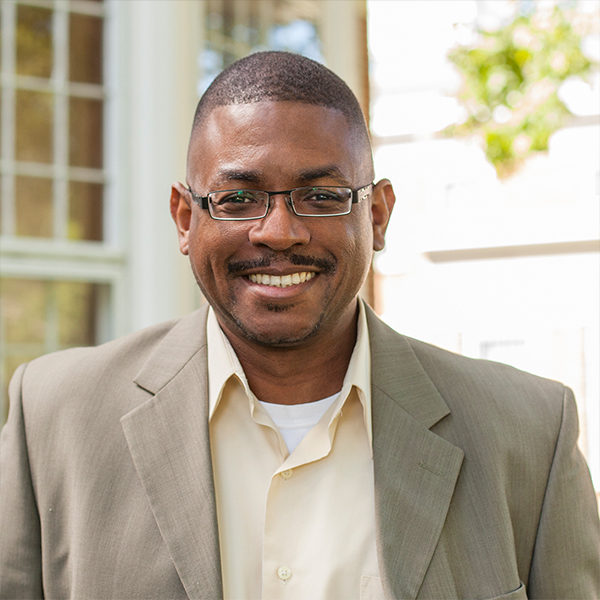Duane Loynes, Rhodes College – Black Communities and Law Enforcement
 On Rhodes College Week: How do we heal the divide between black communities and law enforcement?
On Rhodes College Week: How do we heal the divide between black communities and law enforcement?
Duane T. Loynes Sr., assistant professor of urban studies and Africana studies, looks for answers.
Duane T. Loynes Sr. is an assistant professor of urban studies and Africana studies at Rhodes College. He holds an interdisciplinary PhD in Religious Studies from Marquette University. His research and teaching are situated at the sweet spot where race, philosophy, religion, culture, and justice intersect. Dr. Loynes is currently researching the fractured relationship between Black communities and law enforcement, applying the theoretical frameworks of Afro-pessimism, critical race theory, and unconscious bias to understand the complex dynamics of anti-Black state violence in the United States. He also trains healthcare professionals and students on developing practices to minimize the role that implicit bias plays in framing the patient-provider relationship. Dr. Loynes also teaches ethics and religion courses for the Life Program at Rhodes, and is a founding faculty member of the college’s post-baccalaureate certificate in Health Equity.
Black Communities and Law Enforcement
How can we heal the rift between Black communities and law enforcement?
This is one of the most common questions people ask me, and one that many people are asking after the murder of George Floyd and after other high-profile deaths of Black men and women at the hands of police officers.
The answer is that we can’t until we explore the genetic makeup of policing in America and understand that the fraught relationship between Black Americans and police is baked into the bedrock of this country.
There has been no point in the past 400 years of the American experiment where the relationship between Black people and law enforcement has not been fraught. The phrase “To Protect and To Serve,” a motto adopted by many departments across the country, only dates back to 1955, when it was selected as the Los Angeles Police Department’s slogan in a magazine contest.
There’s an underlying logic in American society that assumes that Black bodies are criminal and meant to be punished more harshly than white bodies. The death of George Floyd in May of 2020 was in many ways almost routine. It parallels what has happened to generations of Black bodies in this country – before it was even officially its own country – who have suffered at the hands of law enforcement through oversurveillance, intimidation, brutality, torture, unjust imprisonment, false testimony and death.
The problem is not bad officers, the problem is the entire system of policing. Our police departments are trained to be violent. It’s not surprising when they are excessive. And it’s very rare for police departments to punish or penalize police officers for excessive violence.
If we’re going to bridge the rift between Black communities and law enforcement, we all need to acknowledge that this issue is systemic and encoded in our society’s DNA.



Hello Doc. : Let’begin a new revolution by flooding the police depts.with black/ Afro.-American male applicants & the golf courses. Also, the colleges, trade schools with non disheveled” hungry” black males. All Lives Matters , Black & Blue; No more Murders, anew -300 annual campaign. Pax, Dr.Loynes.
Thanks, Smitty -GARC,
Baltimore, Md.
Write-In Mayoral Candidate,2020 & 2016 ,Gov..2015. ( Rip Mr.Freddie Gray)
Hon.Richard.N.Dixon, Md.Treasurer & William F.Dixon, Virology, Md.St.DHMH, Lab.Admn.
Dr. Loynes I have enjoyed your conversations regarding police and the black community. And given your interest in this subject matter I am confident you would find my book, FIXING THIS BROKEN THING: The American Criminal Justice System compelling.
Introducing myself, I am James B. Bolen, Ph.D. I am a retired Chicago Police Officer with a doctorate in Criminal Justice. Forgive any perceived hubris on my part, but I am confident that my book is a wonderful blueprint for Criminal Justice Reform. The impetus for my work is the twenty-six years I have worked in the Criminal Justice System. I would be happy to forward a pdf version of this book to you if it piques your interest. Please advise.